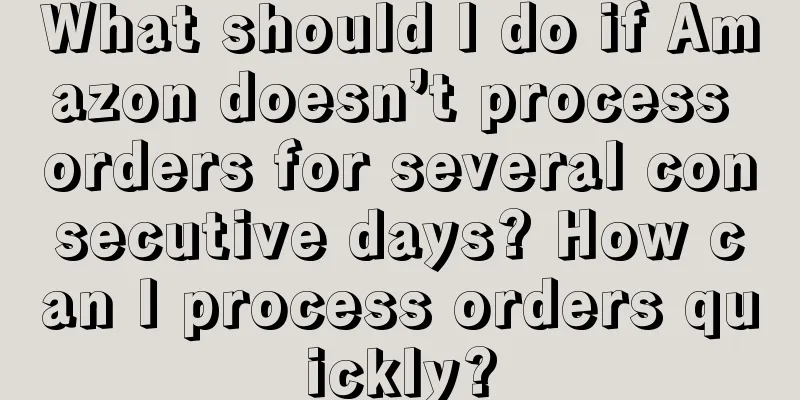Stop calling customers and sending group messages on WeChat

Do you feel that there are a lot of strange phone calls recently? People who lend money, sell houses, promote courses, and invite people to conferences all popped up at once. At the same time, there are more and more WeChat group messages, most of which are about recommending one’s own new projects and new businesses. My email and text messages have also been overwhelmed. I receive at least hundreds of messages every day (luckily, I don’t read them often)… During an online gathering of the weekend notes group, when talking about customer operations, a friend complained: "The boss asked us to call all the customers whose contact information is in the database. The reason is to wake up old customers. What if there is a demand?" Does it sound familiar? The general idea is that business is not easy to do, but the cost of making phone calls, sending text messages, and emails is not high, and there is no loss... But, the result is that customers, like you and me, refuse to answer the call or hang up directly. Some companies’ telemarketers are quite ambitious, and have learned some mediocre sales skills, and started to use clumsy greetings to get close to customers. Some companies are even more ruthless, and directly use AI robots to make calls, and it is said that they can make tens of thousands of calls a day... But consumers and customers are not fools. Can you really “catch” customers by casting a wide net? It is possible. But the greater possibility is that it will damage the brand and even make customers who were originally interested in purchasing feel ignored or even offended. The era when you could work miracles just by getting contact information is long gone. I have written about this topic many times before, talking about precise customer operations, such as "Don't contact me, I will find you when I need to buy" and "Marketing Notes | How to Lose a Customer" In other words, marketing also requires "mutual consent". The professional term is "Permission Marketing". This concept first came from Seth Godin, who said, "You must first gain the customer's trust. Only when they voluntarily communicate with the brand will they pay more attention to relevant information." The principles are understood and the benefits are obvious. For example, it can stimulate expectations for products and services (Anticipated) ; the information provided is targeted at the individual (Personal) and is willing to know; it is highly relevant (Relevant) because it is exactly needed and is more acceptable. He said, "No matter which method is used, by providing valuable incentives, actively attracting potential customers to interact and build relationships, from strangers to friends and then to buyers, permission marketing can effectively reduce meaningless losses and quickly narrow the distance between each other." As data privacy and security regulations are introduced, there will be more serious consequences for harassing customers, such as huge fines... So how do you get the client’s permission? I think it's nothing more than the usual clichés: 1. The best way is to communicate in a targeted manner according to customer segmentsFor example, if you already have SCRM and CRM systems, and have marked customer portraits and experience journeys, then don’t be lazy in terms of content, say different things to different people, and ensure restraint and accuracy. For example, for customers in the power industry who have participated in many marketing activities but have not yet converted transactions, we can send the highlights of past marketing activities and the latest industry customer cases via email or corporate WeChat to customers who have authorized "willing to receive new information." After the system shows that it has been viewed or opened, try to ask if further communication is possible. Second, attract customers to come to youSome people say that To C plants grass, and To B plants trees. No matter what you plant, you must first sow the seeds. Try to make the grass and trees look better and more diverse. For example, interesting videos, pictures and texts are continuously updated on social media, and appropriate search keywords, soft articles, hard advertisements, etc. are placed to attract interested customers. Customers who have done business with or are in communication with the company will also feel the company's strength when they see this content, making it easier to achieve cooperation or renewal. 3. If all else fails, referrals from familiar customersIf your content capabilities are a little weak and you don't have spare money to invest, but your product is very strong, then mobilize more referrals from past customers and work hard on case studies. Even if you have to promote it, you can also share your products and solutions honestly in your circle of friends and customer groups... 4. If it doesn’t work, you should also promote it offline and sincerelyEven in the worst case scenario, when there is no group and customers are unwilling to introduce you, you can still go to industry exhibitions. In the rest area, you can actively hand a bottle of water to a stranger and ask if you can let them see the information, which is also a polite permission marketing. This method is not advanced at all, it is blind and even backward. But it is easier to find customers than bombarding calls. Finally, I still want you to help persuade those leaders who are obsessed with casting a wide net. Stop making random calls and sending random text messages/WeChat messages. It's really useless. Marketing interaction also requires "mutual consent". Don't you think this is the truth? Author: Hanni Source public account: Time Notebook (ID: 1089517) |
<<: What needs to be done right for Xiaohongshu store to sell 5 million goods?
>>: The "advanced version" of refund only is here: someone will help you "grab" the product you like
Recommend
Are Shopee and Shopify the same? What is the difference?
Shopee has a strong background and is developing r...
Douyin and Tencent Video reached a cooperation, witnessing the historical moment
Recently, after a long tug-of-war, Douyin and Tenc...
Internet celebrity or long-term success? Leaders may need more
Entrepreneurs’ live broadcasts need to have clear ...
Small and medium-sized brand owners are trapped in the game
In today's business environment, small and med...
What should new Amazon merchants pay attention to?
Amazon is the leader among all e-commerce platform...
What are the ways for individuals to receive cross-border payments? Introduction to payment methods
You can do cross-border e-commerce business as an ...
B station "horizontally"
Bilibili changes the playback volume indicator, an...
Employees of a large company revealed: This is how we built the activity effect evaluation system
How to build an activity effect evaluation system?...
What does Amazon sales work involve? How much commission do you get?
Nowadays, cross-border e-commerce is very popular ...
The most comprehensive summary, the standard process of data analysis, save it!
This article systematically explains the standard ...
How long is the shelf life of the “price-increasing medicine” of long videos?
Recently, long video platforms have repeatedly bee...
Are the good days of 9.9 yuan a cup of coffee over?
This article makes an in-depth analysis of Kudi Co...
How is Shopee's official wallet? How is the supplier payment function?
There are several payment services on the Shopee c...
Will Video Accounts be the hope for WeChat? Let’s take a look at some fatal problems first
A few days ago, Ma Huateng released an internal le...
How to open a store on Shopee mobile phone? What problems may I encounter?
Shopee is free to join, with no platform usage fee...









